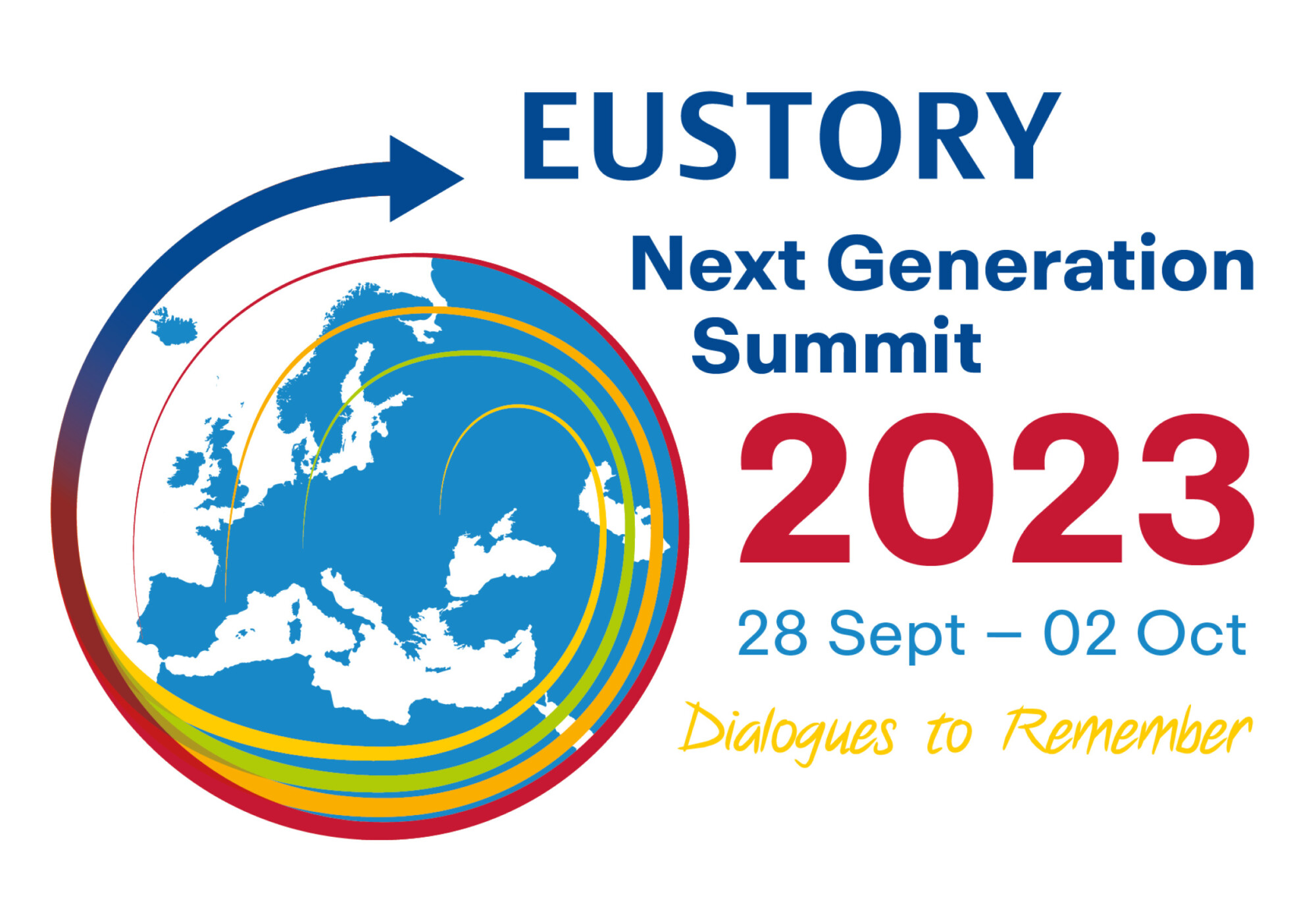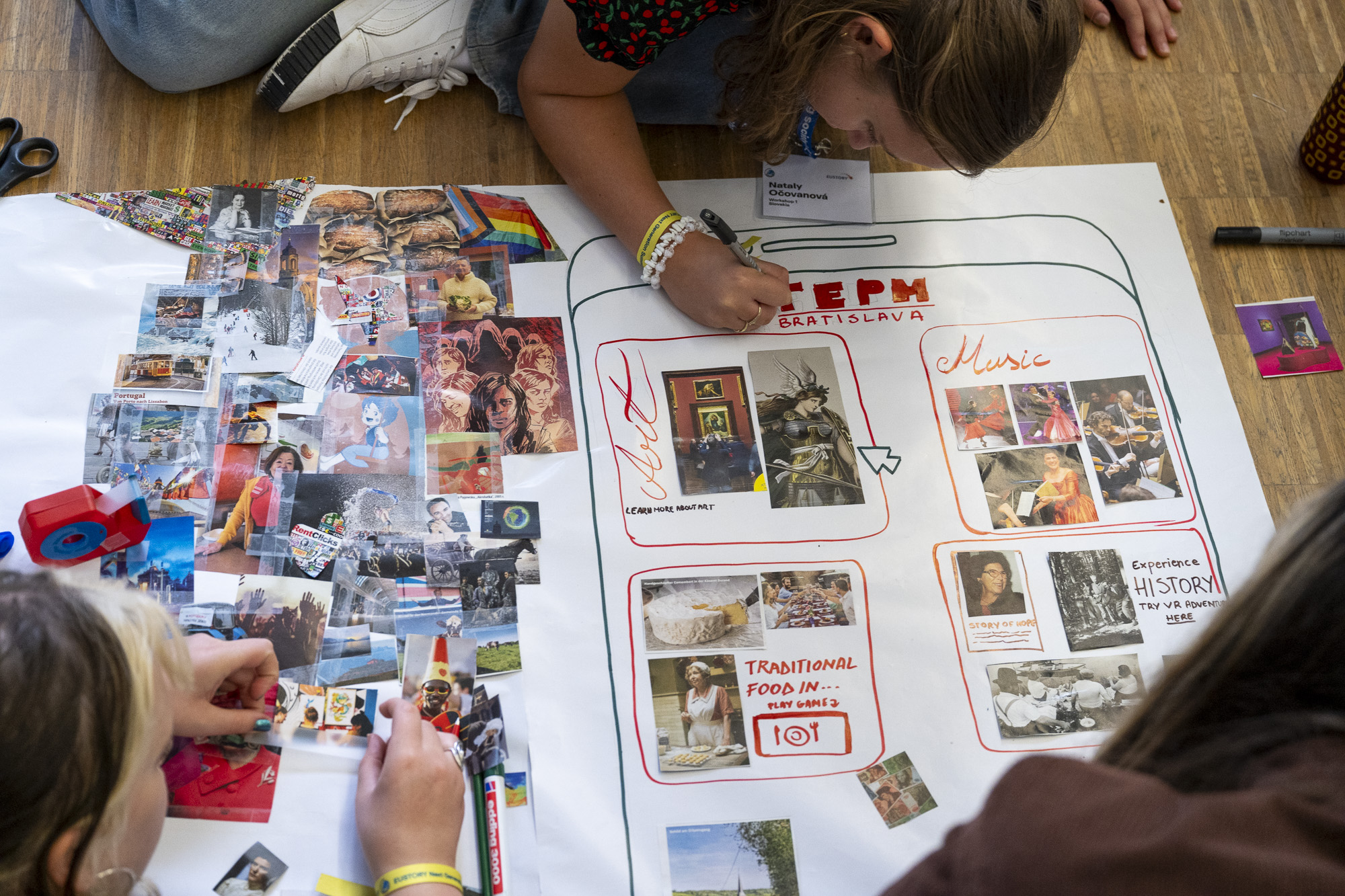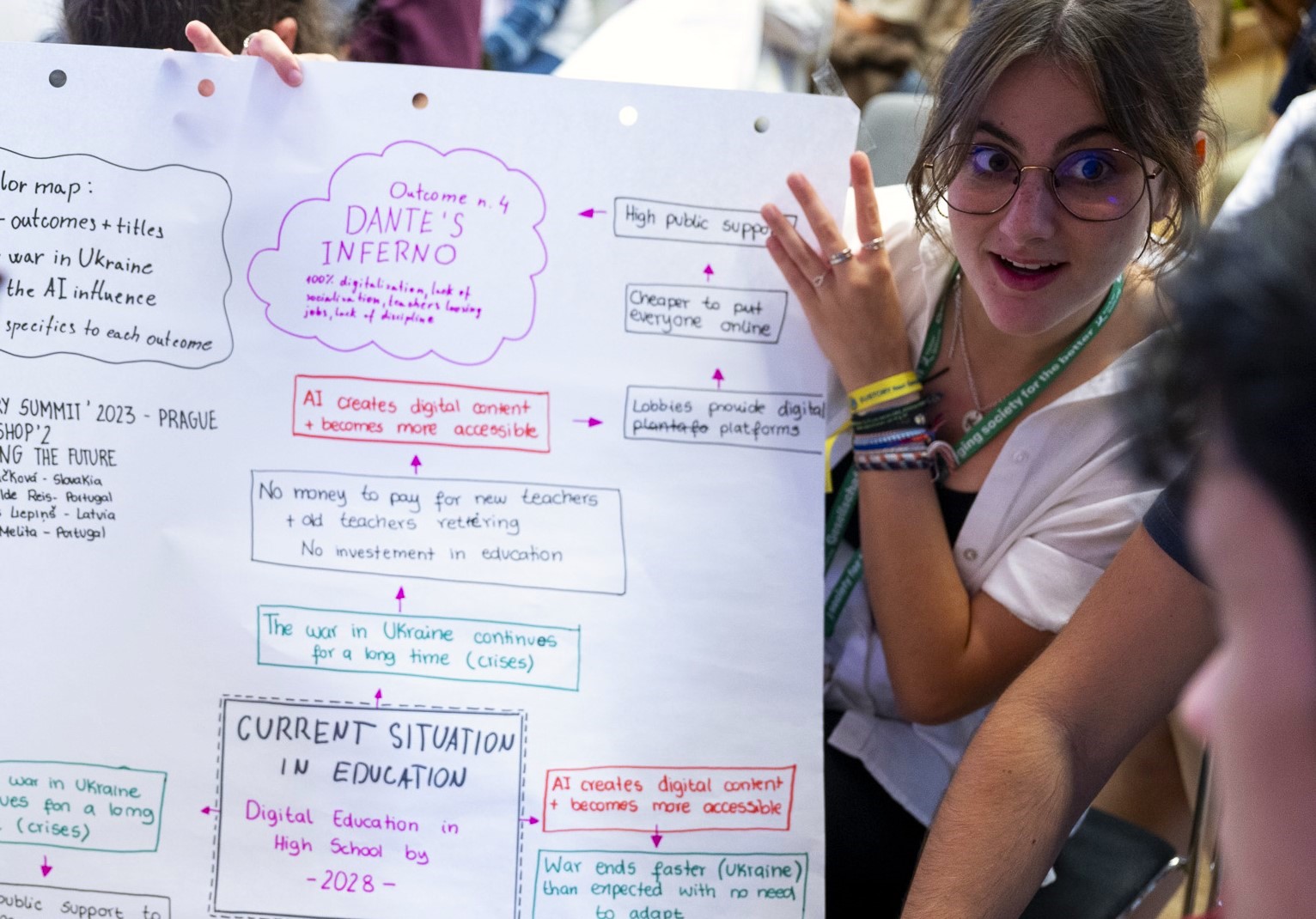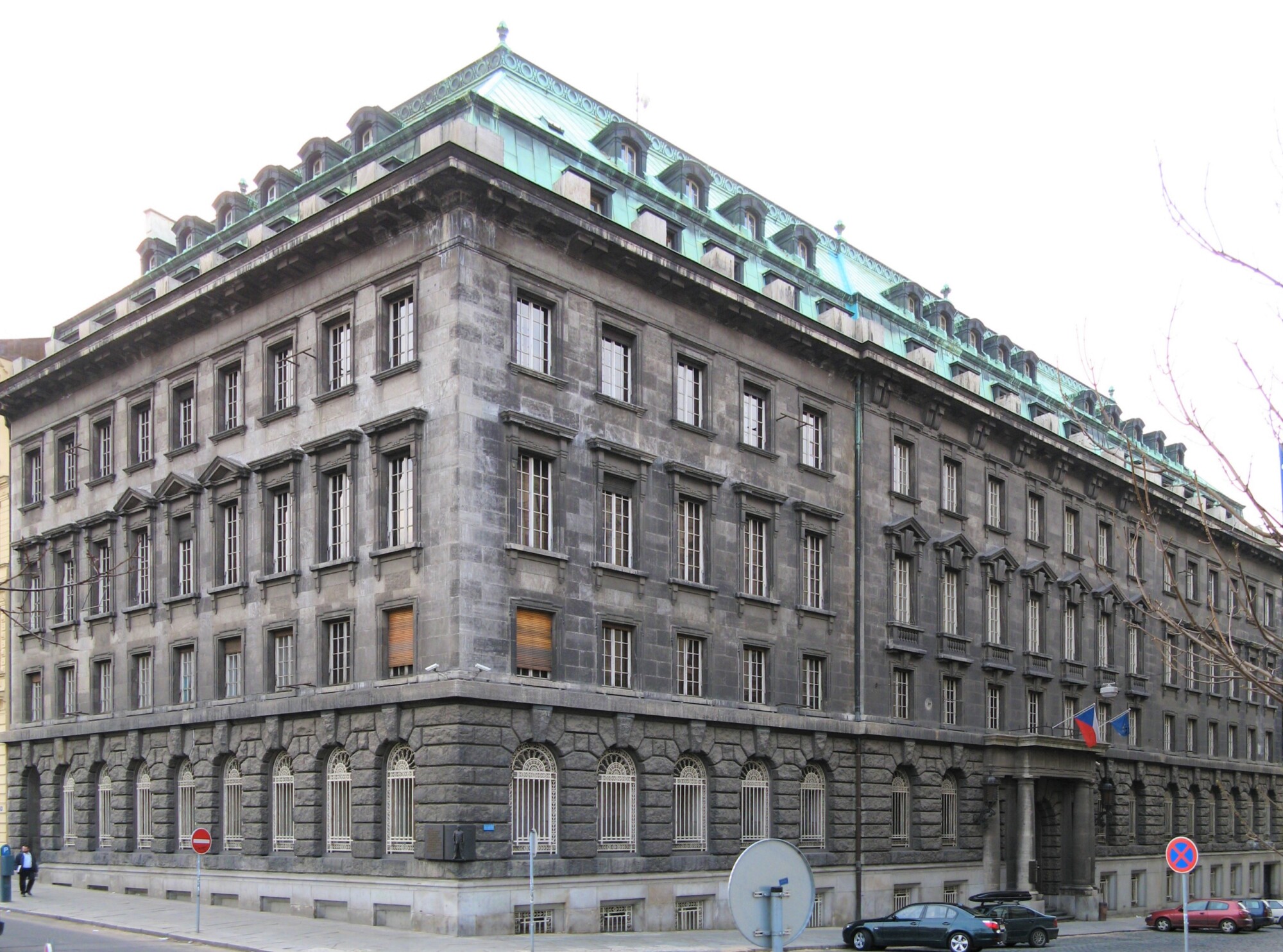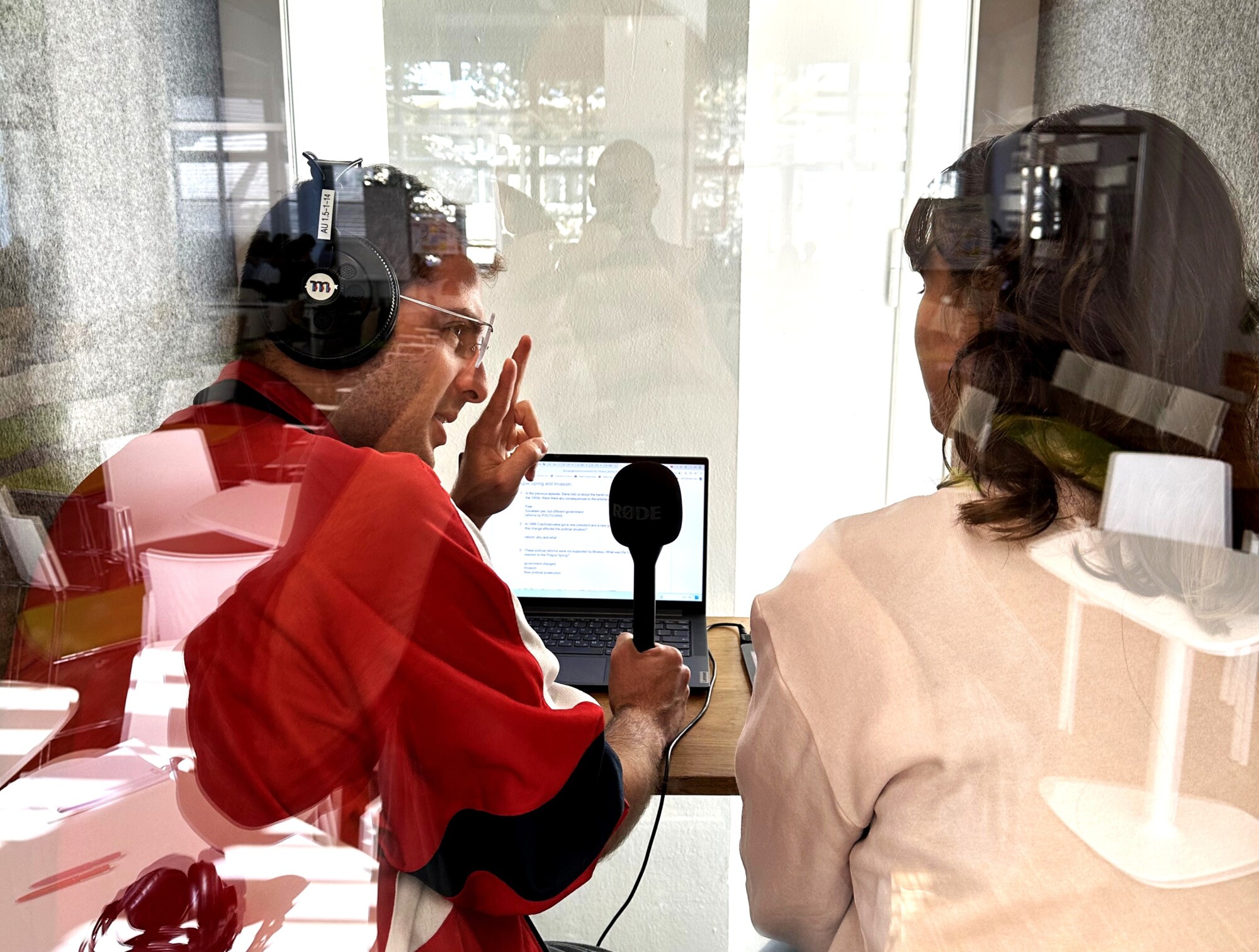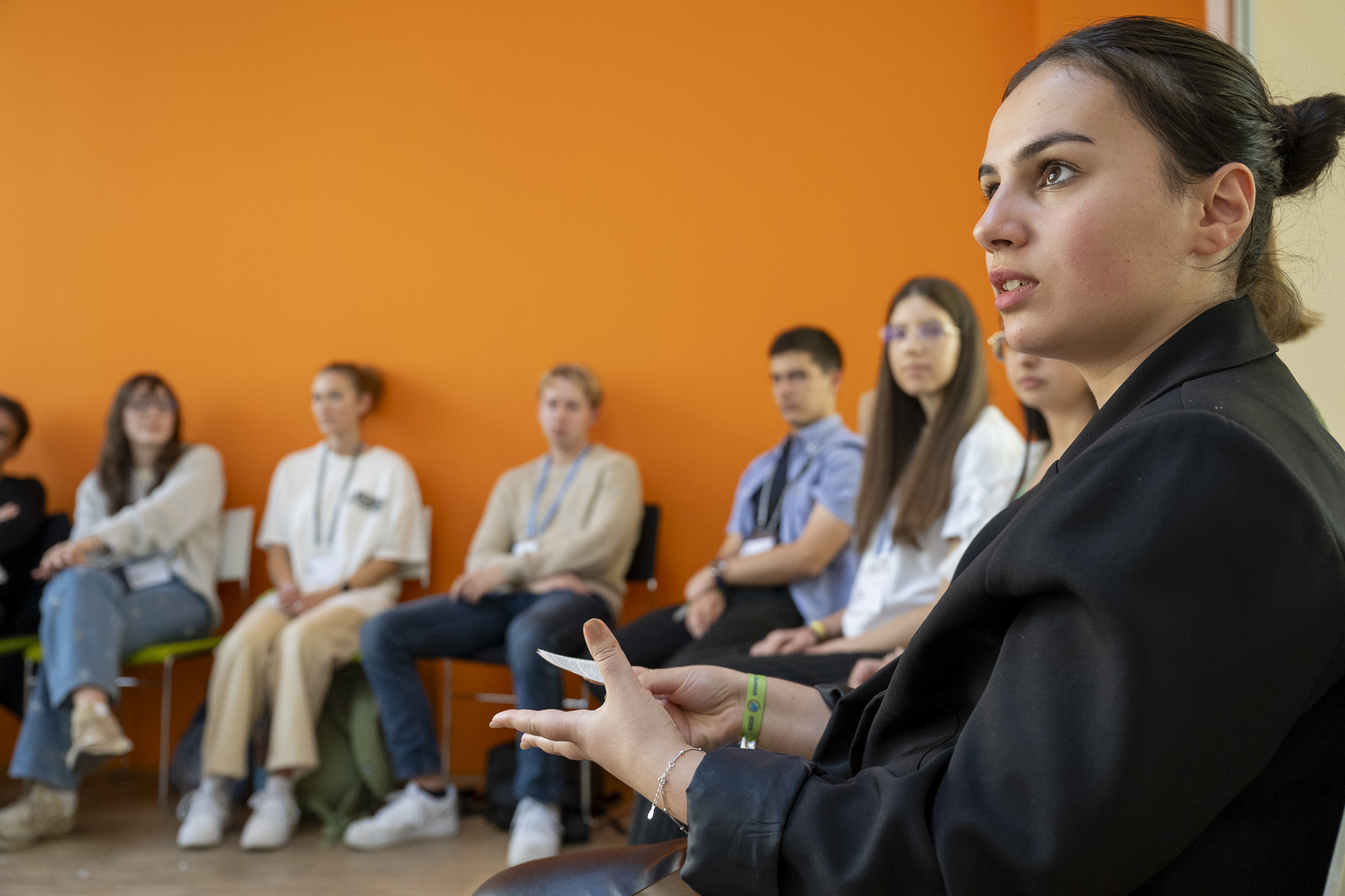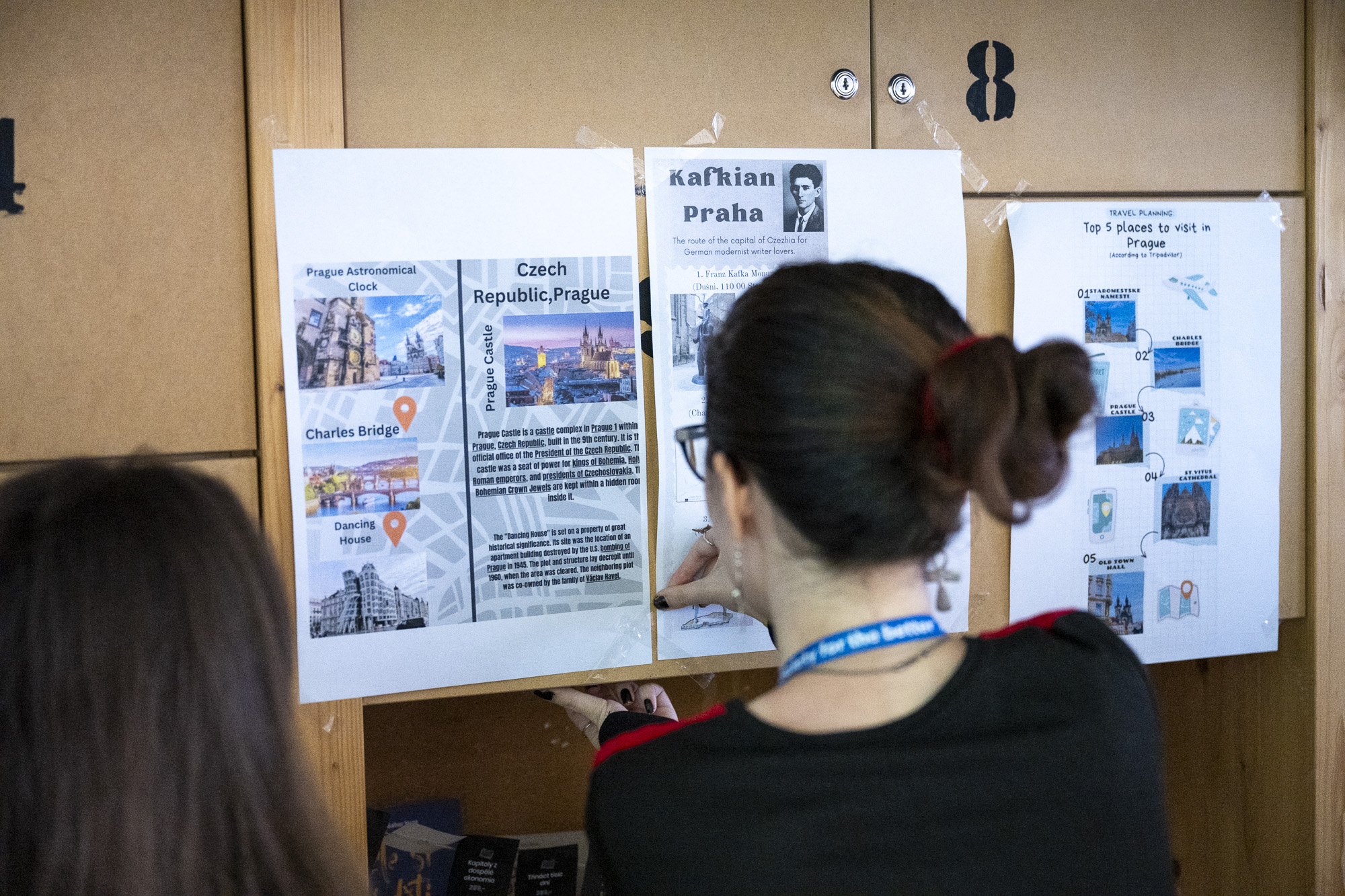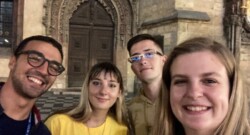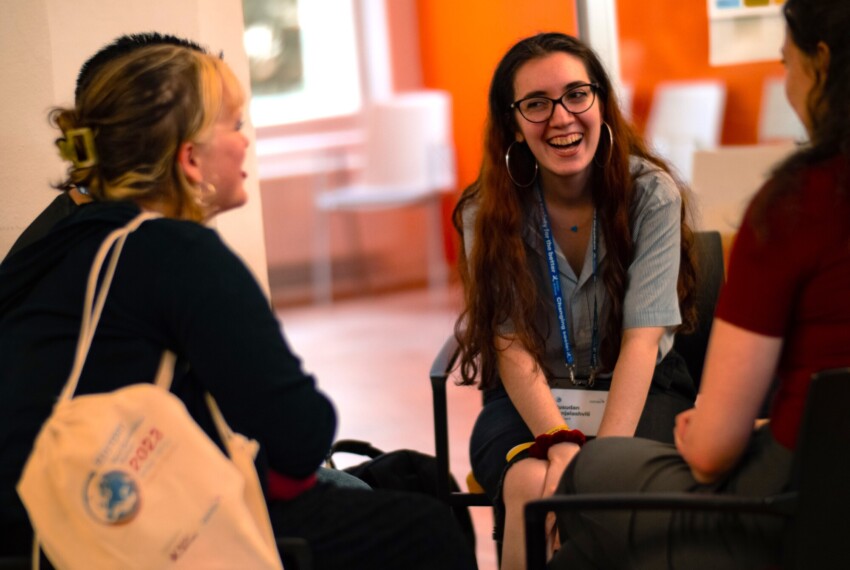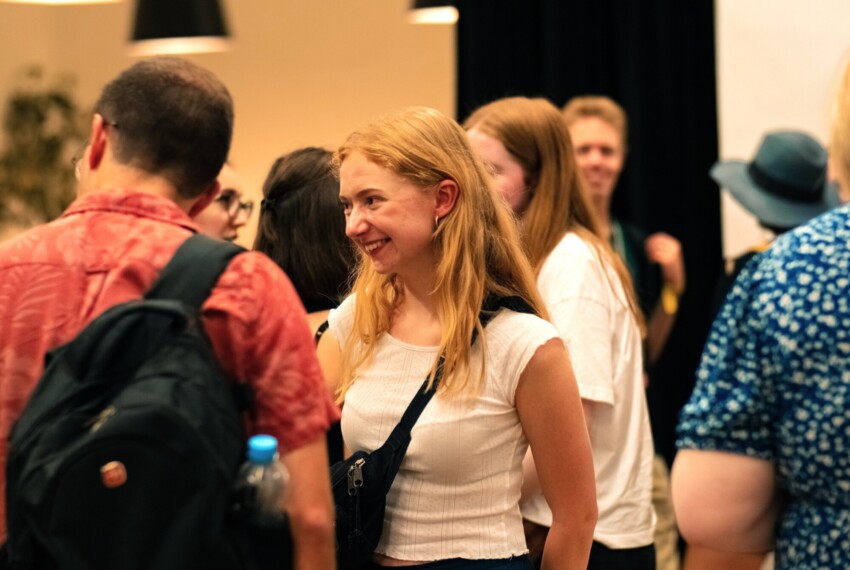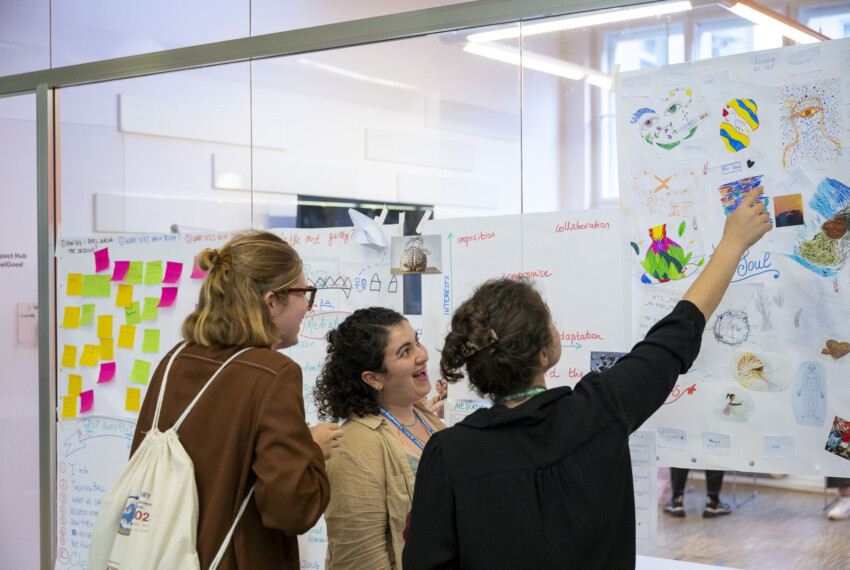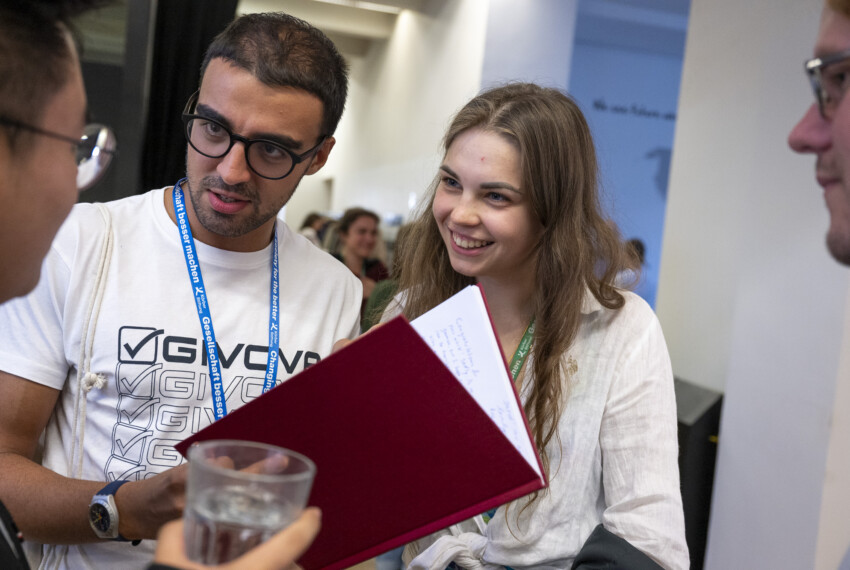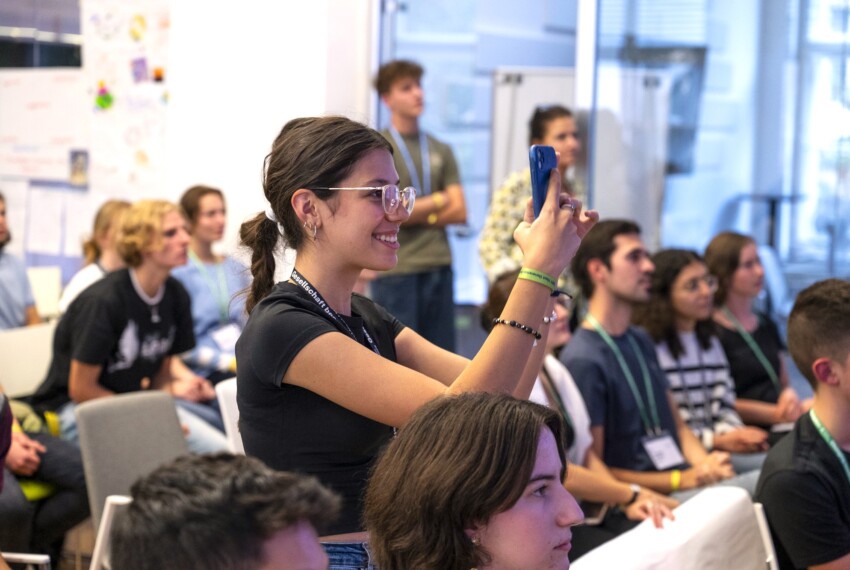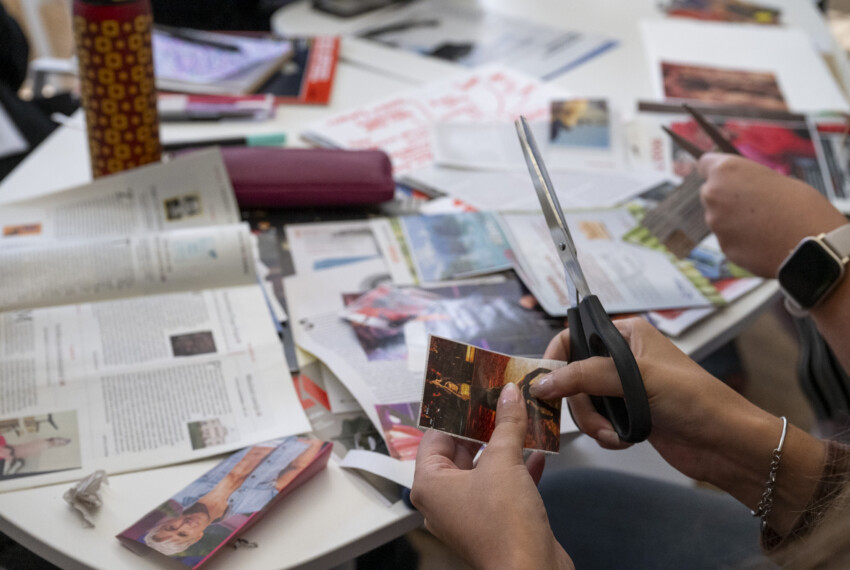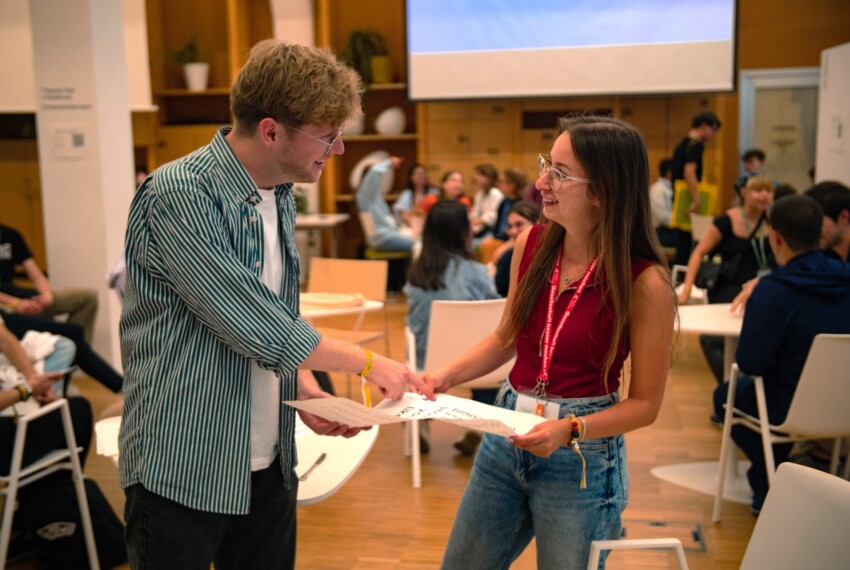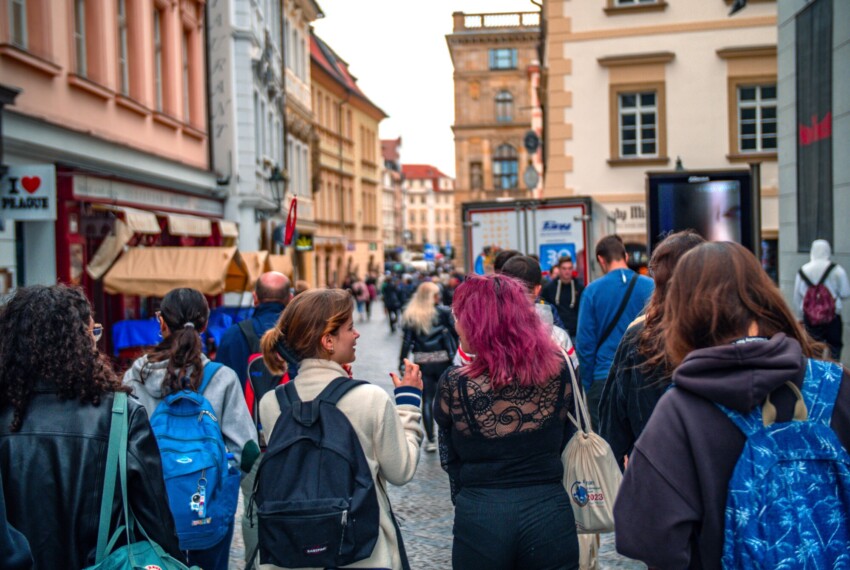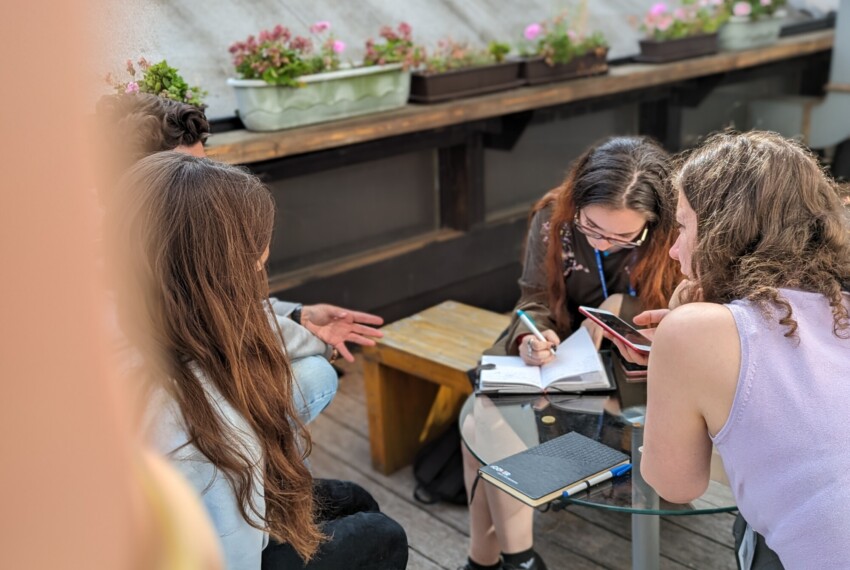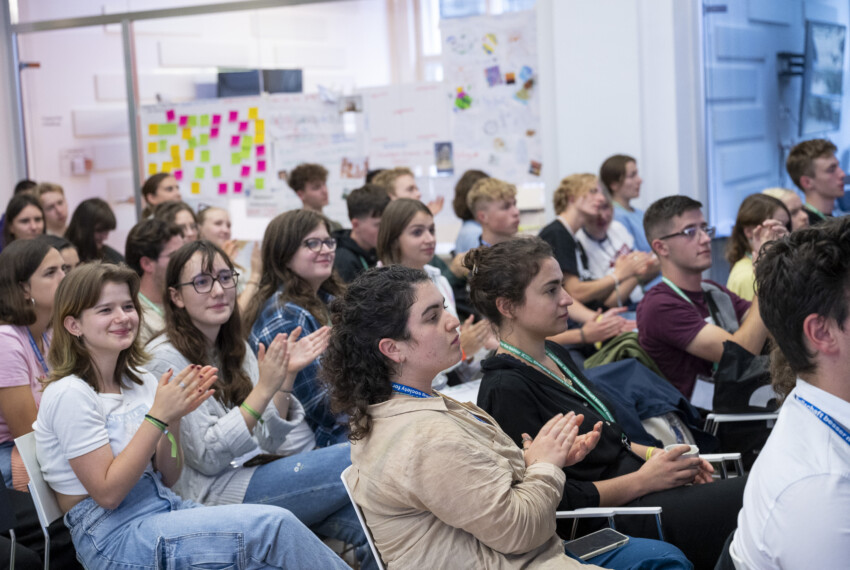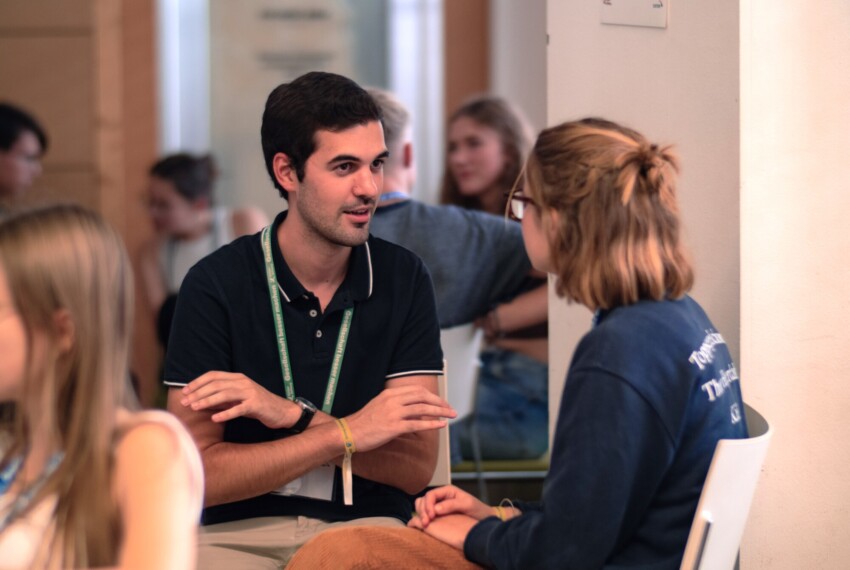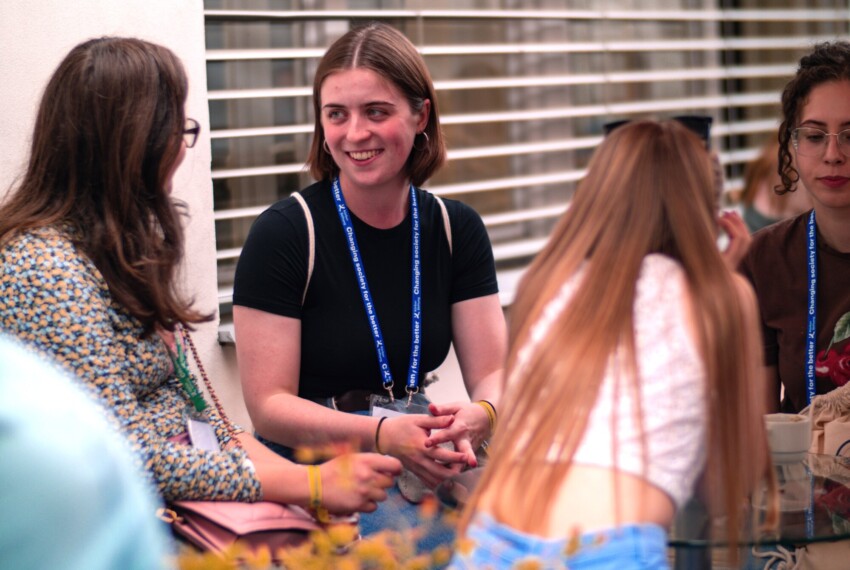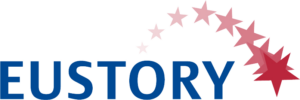At the EUSTORY Next Generation Summit from 28 September to 02 October 2023, more than 100 young history enthusiasts from 23 countries came together in Prague to follow the motto “Dialogues to Remember”: They exchanged perspectives on questions related to current challenges, negotiated forms of remembrance culture in the 21st century and tested tools to better navigate to a peaceful future…
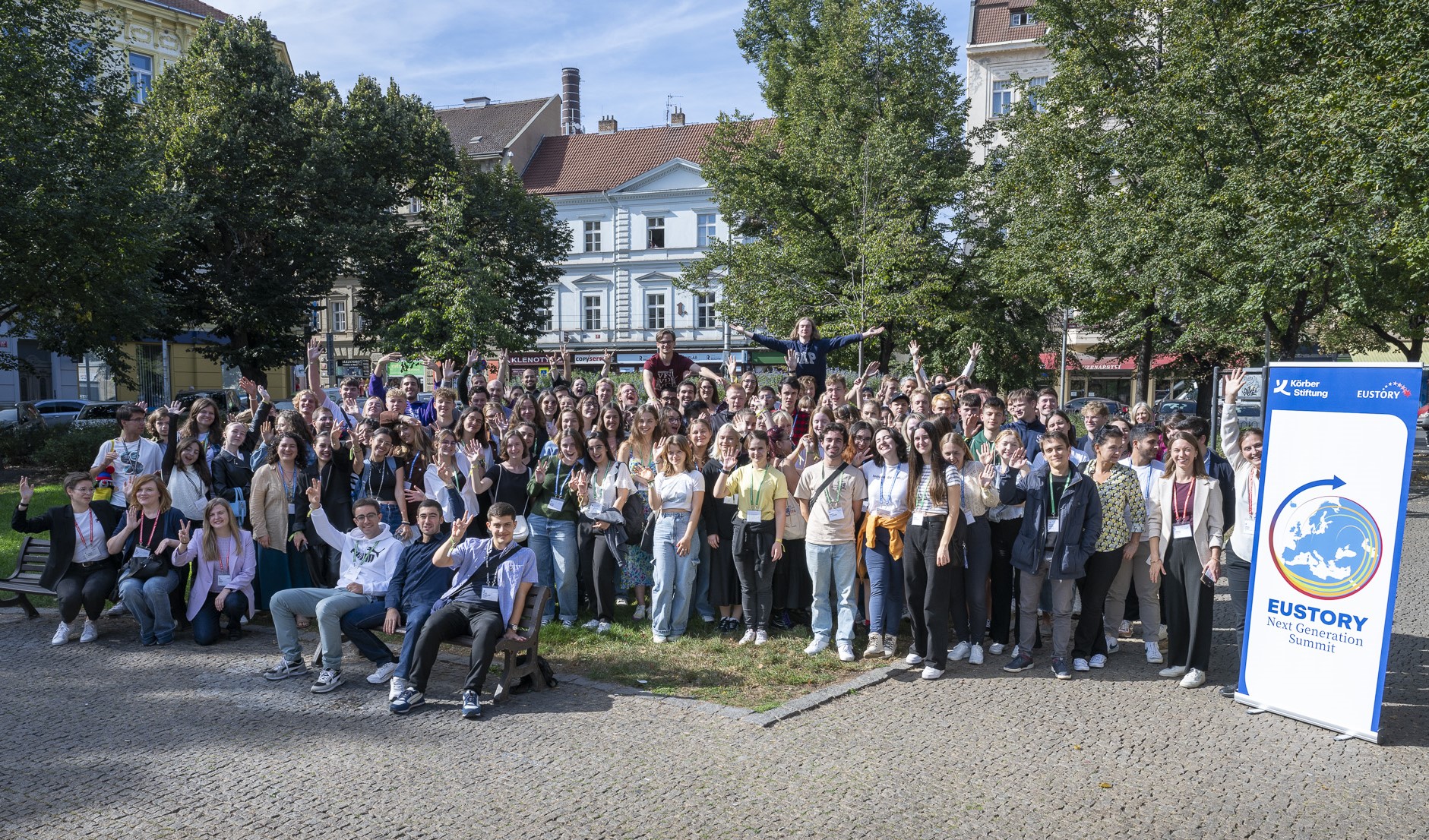
Dialogues to Remember
In Autumn 2023, it was time to talk – and to meet! After three years of covid-related digital EUSTORY Youth Activities, the EUSTORY Next Generation Summit came back in a new shape: Following the motto “Dialogues to Remember”, the international youth history festival welcomed more than 100 winners of 23 national history competitions belonging to the EUSTORY Network. In six different workshops facilitated by various international partners, as well as in various intercultural group activities, the participants aged 16 to 25 dealt with history and its legacies, talked about identities, and discussed their worries related to a gruelling war in Europe, but also shared their visions for a peaceful future.
What are the chances and risks of artificial intelligence when it comes to historiography and remembrance? How to deal with history cast in stone? Can dialogue and creativity really transform a conflict into peace? Which values and narratives unite the European youth across borders? These and other questions were debated and put on the test by using diverse methods and tools.
What remains? Check out the workshop results in form of videos, podcasts and more impressions of the EUSTORY Summit 2023 below!
Workshop Documentation
EUSTORY Summit Pulse Check
Which traces did recent crises and wars in Europe leave? Which worries and which hopes does Europe’s youth have? We asked 100 Summit participants from 23 countries about it:
The Pulse of Europe’s Youth
Which traces did recent crises and wars in Europe leave? Which worries and which hopes does Europe's youth have? Find answers in EUSTORY's European Youth Survey...
Picturing the Summit
Organised by
This event was organised by Körber-Stiftung and EUSTORY.
For decades, Körber-Stiftung and EUSTORY were and still are in close working relations with a variety of partners from civil society in Europe and beyond. Together they organise programmes for critical, future-orientated history and civic education. This also includes organisations in Ukraine and Russian organisations in exile.

